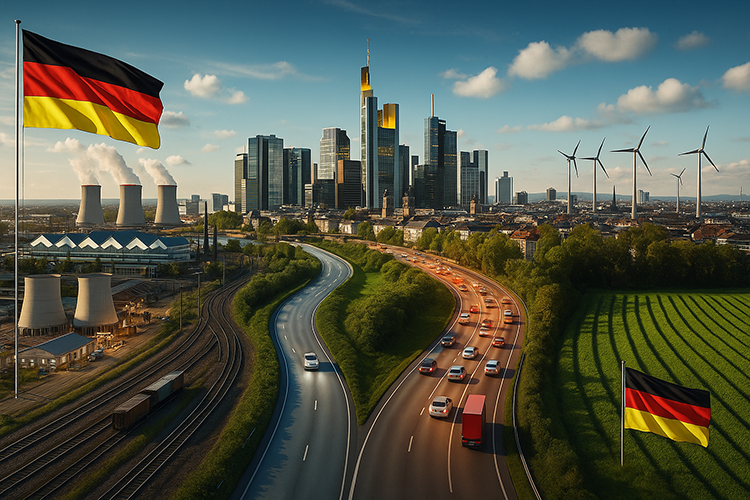DIW Economic Barometer signals strengthening recovery in Germany
The German Institute for Economic Research (DIW Berlin) reports growing signs of economic recovery, with its Economic Barometer rising to 94.2 points in June—its highest level in over two years. This marks the second consecutive month of significant gains, following a setback in April that was largely attributed to renewed U.S. tariff threats. The indicator is now approaching the neutral 100-point mark, which signals average economic growth.
According to DIW Chief Economist Geraldine Dany-Knedlik, although the current situation remains challenging due to global trade tensions and uncertainty surrounding potential U.S. tariffs on EU imports, forward-looking indicators are becoming more optimistic. Contributing to this improved outlook is a new fiscal package announced by the German government, alongside supportive factors such as interest rate reductions by the European Central Bank and declining inflation.
Nevertheless, risks remain. Recent geopolitical developments in the Middle East and associated volatility in crude oil prices could pose renewed challenges for both the German and global economies. Within Germany, the industrial sector is showing early signs of a turnaround. While new orders and backlogs have increased, pointing to improved business expectations, actual production output has not yet shown a corresponding rise. The ifo economic surveys suggest that, despite an overall better outlook, businesses still rate the current situation with caution.
DIW economist Laura Pagenhardt notes that industry is only gradually recovering from previous downturns. The pace and success of this recovery are likely to depend on how effectively companies leverage the newly announced fiscal measures and expand their operational capacity.
In the service sector, business expectations are improving. Companies catering to consumers are particularly optimistic, and sentiment in business-related services, which had previously been more subdued, is also showing some improvement. With inflation stabilising and wages growing steadily, private consumption is gaining traction. The GfK consumer climate indicator has also improved, driven by more favourable expectations regarding the broader economy.
DIW economic expert Guido Baldi concludes that after a prolonged period of stagnation, the German economy is showing signs of gradual improvement. Fiscal support and more stable domestic conditions are helping to drive recovery. As external demand slows and geopolitical tensions persist, stronger domestic demand is expected to play a key role in sustaining momentum.









